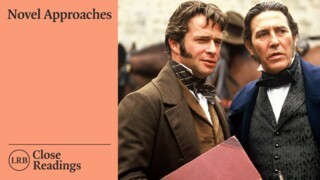Novel Approaches: ‘The Mayor of Casterbridge’ by Thomas Hardy
Mark Ford, Mary Wellesley and Clare Bucknell, 2 December 2025
After drunkenly selling his wife and child at auction, a young Michael Henchard resolves to live differently – and does so, skyrocketing from impoverished haytrusser to mayor of his adoptive town. Mary Wellesley and Mark Ford join Clare Bucknell to unpick the many strands in Thomas Hardy’s first Wessex novel. They explore how the novel – at once ‘algorithmic’, theatrical and fatalistic – is suffused with Hardy’s class anxieties, affinity with Dorset and fascination with pagan England.
